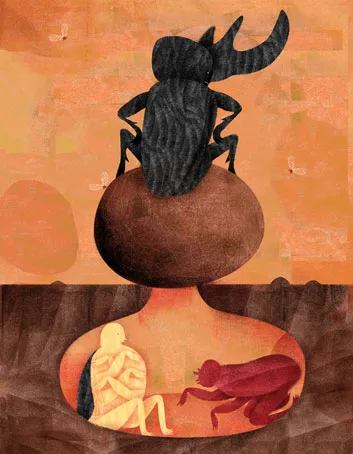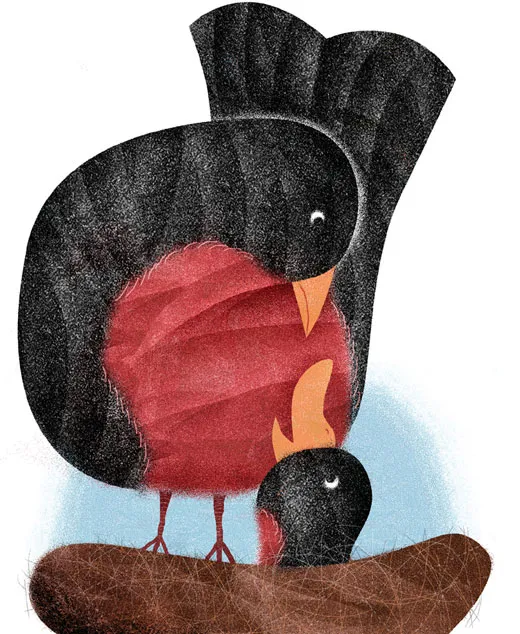Close Encounters of the Sneaky Kind
When it comes to mating, the brawny guy is supposed to get the girl, but biologists are finding that small, stealthy suitors do just fine
According to our conventional notions about sexual behavior, the beefy macho males—the Mr. Bigs of the world—are supposed to get the girls. But recent research has starkly demonstrated that we may have it all wrong. The natural world is full of what biologists call "satellite males" or "sneaker males." Many of them are relative weaklings, or lack the masculine ornamentation to dazzle choosy females. Some even practice unconventional strategies like cross-dressing. And surprisingly often, these mating tactics are successful.
Scientists have documented sneaker-male behavior in hundreds of species, from damselflies to Sumatran orangutans. Among dung beetles, for instance, the smallest sneaker males relentlessly attempt to slip into tunnels where females are sequestered while Mr. Big, the guarding male, is looking the other way. Or alternatively, smaller males withdraw to a respectful distance and dig tunnels of their own. Once hidden safely underground, these sneakers veer sharply sideways to intersect the main tunnel and enjoy a tryst with Mrs. Big while Mr. Big himself stands stupidly at the door.
Up until the 1970s, it was scientific dogma that the males in every species—little boy dung beetles and damselflies alike—all wanted to grow up to be fighters. That is, they wanted to acquire and defend territories and harems. At least in theory, the combined forces of natural selection (getting killed by predators or disease) and sexual selection (getting killed by rivals or chosen by females) would ruthlessly weed out any sissy alternative lifestyles. But in the mid-1970s, evolutionary theorists started to look beyond the fighter stereotype to study how a male might actually benefit from being smaller, weaker and, well, more effeminate.
The sneaky approach seems to work best when picky females concentrate their favors on a relative handful of big brutish males (or when the big brutes corral females in harems). Alpha males are still the winners under this scenario of strong sexual selection, but the overwhelming majority of conventional males wind up as losers. Sneaker males, with their effective mating forays, may actually do better on average than these ordinary Joes.
Sneaky mating tactics may not just provide a way for weaker males to avoid being weeded out. Studying coho salmon, biologist Mart Gross found that jacks, smaller coho males that have matured early, spend much less time at sea than their larger counterparts, the hooknoses, which delay maturity for an extra year to grow much bigger and are therefore more prized by sport fisherman. The percentage of jacks surviving and making it home to the spawning grounds is more than double that of hooknoses. And once they get there, jacks are adept at hiding and darting out after a spawning female to steal fertilizations from the lumbering hooknoses. In terms of genetic fitness, says Gross, the smaller jacks are in fact the stronger members of the population. The little guys have the edge over the brawny males.
So watch out big boys of the world, little guys are not to be dismissed, though they might prefer it if you do.
/https://tf-cmsv2-smithsonianmag-media.s3.amazonaws.com/accounts/headshot/richard-conniff-240.jpg)



/https://tf-cmsv2-smithsonianmag-media.s3.amazonaws.com/accounts/headshot/richard-conniff-240.jpg)